Search Results
Showing results 201 to 220 of 321
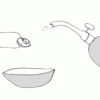
Physical Change
Source Institutions
In this activity, learners use heat to separate zinc and copper in a penny. This experiment demonstrates physical properties and how physical change (phase change) can be used to separate matter.
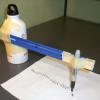
Measuring Earthquakes
Source Institutions
In this activity, learners build their your own seismograph with household materials to document shaking.
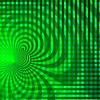
Magnetic Shielding: Magnetic lines stop here
Source Institutions
Testing magnets is always a fun pastime, but here, we're going beyond "will it attract the magnet?" In this activity, learners will investigate which materials allow magnetic fields to pass through or
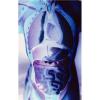
Digestive System: A Kinesthetic Lesson
Source Institutions
In this simulation, learners act out each digestive function of the organs, tissues, and cells in the digestive tract.
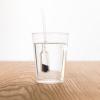
Eyedropper Hydrometer: Buoy your understanding of density
Source Institutions
Build a hydrometer (measures the density of a liquid) using a pipet or eyedropper.
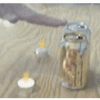
Phantom Phlame
Source Institutions
In this trick, hold your hand over a burning candle without getting burned, by reflecting and transmitting the light of two candles. This activity is best suited as a demonstration.
The Blue Crab's Chesapeake Journey
Source Institutions
In this data collection activity about crabs, learners use data from the Virginia Institute of Marine Science (VIMS) trawl survey to determine the areas of the Chesapeake Bay that are being used by bl
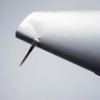
Cactus Needle Phonograph
Source Institutions
Build a phonograph record player using a cactus needle, a record, LEGOs gear box, and a piece of paper! This activity uses a Pico Cricket to turn the motor.
Shadow Puppets
Source Institutions
If you have lights, cardboard, scissors, and some brass fasteners, you can make shadow puppets! Create a story-telling and design challenge for your learners with this simple and creative activity.
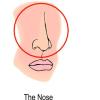
Smell Detective
Source Institutions
In this activity about olfaction (8th activity on the page), learners smell 10 different items with different odors. Then they try to identify the smells when they are mixed together.

Tasty Buds
Source Institutions
In this activity (1st activity on the page), learners explore their sense of taste and the structure of the tongue by taste-testing various foods.
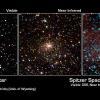
Colors of Stars
Source Institutions
In this activity, learners observe colors in the flame of a burning candle to explore connections between matter, light, color and temperature -- basic concepts of matter and energy.
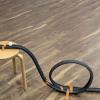
Roller Coasters
Source Institutions
In this activity learners will build roller coasters and test them using small balls or marbles.

Rock Candy
Source Institutions
In this yummy chemistry activity which requires adult supervision, learners use sugar and water to explore how crystals form.
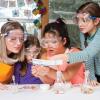
Nature of Dye
Source Institutions
"Nature of Dye" allows participants to create their own dyes and art while exploring how chemicals interact and how these interactions can have real-world applications.
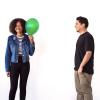
Conversation Piece
Source Institutions
Focus sound through a balloon! In this Exploratorium activity, you'll use dry ice to create a balloon that's a sound lens.
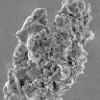
Properties of Dust
Source Institutions
In this activity, learners carry out a scientific investigation of dust in their classroom. Learners produce an analysis on graph paper of the dust they collect over the course of a few days.
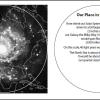
Our Place in Our Galaxy
Source Institutions
In this fun and simple hands-on astronomy activity, learners construct a model of our place in the Milky Way Galaxy and the distribution of stars, with a quarter and some birdseed.
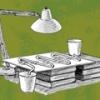
Feel the Heat
Source Institutions
In this design challenge activity, learners design and build a solar hot water heater. Their goal is to create a heater that yields the highest temperature change.
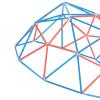
Build A Dome
Source Institutions
In this activity, learners explore the structural strength of triangles by creating their own free-standing geodesic dome out of plastic straws.
